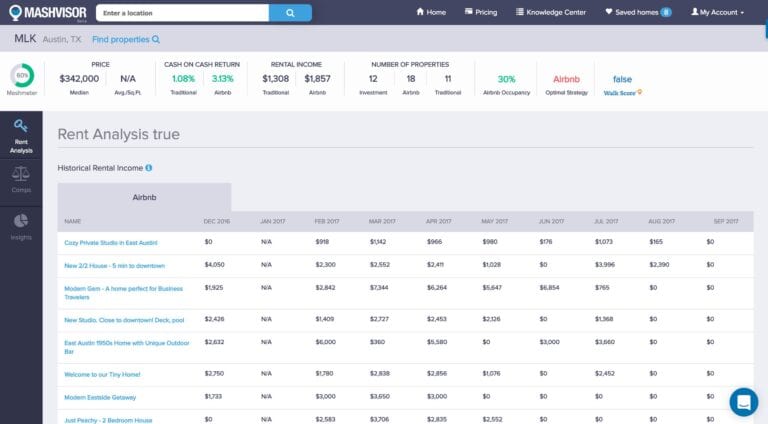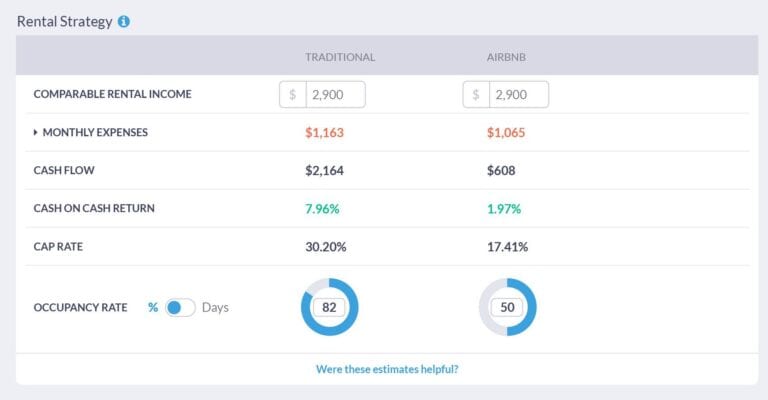Buying the house next door is a real estate investment many people ignore. Most real estate investors tend to look for rental properties very different and far away from their own homes. It is true that today you can invest in a property out of state easily and risk-free. And a lot of the time it can be very profitable. But why not put your money where you can see it? Let’s see if it makes sense.
Is It a Good Idea to Buy the House Next Door to Rent Out?
Buying your neighbor’s house sounds like a smart choice for people who want to make money in real estate as a side hustle. It is really convenient in many ways:
- You are there to oversee any repairs being made unlike long distance real estate investing where you might never see the rental property you are buying.
- You also know the neighborhood well so you will be able to attract the right kind of tenants to settle in comfortably. Maybe the school your own kids go to is good. Or all houses on the street have dogs so newcomers should at least like dogs.
- As a landlord, it will be easy to keep an eye on your tenants or check Airbnb guests in and out. Being a remote landlord is possible, but harder.
- You can do some of the maintenance yourself to save money. Winter property management and Airbnb cleaning and restocking, in particular, will be a breeze when you live next door. You might even get better prices when you decide to repaint both houses, for example.
All that is nice, but buying the house next door should also make financial sense as an investment property. Here is how to evaluate the return on investment potential of your neighbor’s house.
Related: How Can You Use a Rental Potential Calculator to Buy Investment Properties?
Neighborhood Analysis
First, check your neighborhood’s real estate market to see if it is worth buying rental property there at all. Real estate analytics software like Mashvisor offers Neighborhood Analytics just for that. You can find your neighborhood there and explore how it is doing in terms of rental property performance. You will get neighborhood stats such as median home price, the price per square foot, rental income, cash on cash return, Airbnb occupancy rate, Walk Score, and the number of properties rented out traditionally, or on Airbnb. You also can review other rental properties in the neighborhood. This rental market analysis gives you an idea of what rental income and competition to expect before buying the house next door.
Related: Where to Find Neighborhood Data for Real Estate Investing
Better yet, the tool calculates what the optimal investment property in the neighborhood is: how big of a house and how many bedrooms. And you will get a list of sales comps. This helps you set your budget for buying the house next door. A good offer will match the current prices of homes nearby.
Rental Property Analysis
Once you have evaluated the neighborhood as a whole, you can go deeper and do a rental property analysis. All you need to do is add the listing to Mashvisor with its characteristics (size, year built, etc.) and address. Based on historical data from similar properties (rental comps), you will get an analysis of how much buying the house next door will cost and earn you:
Rental Strategy
Mashvisor compares the rental income, monthly expenses, cash on cash return, cap rate, occupancy rates, and cash flow if you rent the house traditionally or as an Airbnb. That is a straight answer to what return on investment you will get if you buy your neighbor’s house to rent out using either strategy.
Financing the Purchase
To make the right decision, you need to think about how you are going to finance buying the house next door. Mashvisor lets you compare different mortgage terms and also calculates payback period automatically for you. It also provides data on property tax, HOA fees, insurance, and utilities for the most accurate financial estimate possible.
Related: A Guide to Creative Financing for Real Estate Investors
These insights are gold if you are considering buying the house next door to rent out. You will know if you can make money renting out this particular house even before you talk to the owners. You will also know how realistic it is to pay for it and when the real estate investment will pay off. This is great research to start with when making an investment decision.
Steps to Take to Purchase Your Neighbor’s House
Buying the house next door is a sensitive deal. Do not push your neighbors too hard because they might get the feeling you are buying their house to make them move out of personal spite.
Here is how to approach your neighbor when their house is not on the market.
Preparation
- Make casual contact with your neighbor if you don’t know each other well. This is to put them at ease and get a feeling of their attitude and character.
- If you do know them, when you get together, probe casually with a few questions about how they feel about the neighborhood and the city. Maybe they will drop a complaint for you to use as an argument in favor of them selling the house later.
- Put together your offer for buying the house next door – your budget and terms as defined during your market research. Do not send a lowball offer especially if your neighbors are elderly or living alone as that might look very bad and break the whole deal.
- Write a letter to your neighbors, outlining the offer and why you want to buy their house. Use what you know about them to your advantage. For example, if they told you they do not like the weather in your city, suggest they could move somewhere they would enjoy more. Or if they have been struggling to keep up the maintenance of the house, frame it as an opportunity for them to downsize and take a breath.
Making an Offer
- Go over and give them the letter at a suitable time – the weekend is best because people are more relaxed and will probably receive the news better. Repeat what is already in the letter and do not linger so they can think it over.
- Since it is an unsolicited offer to purchase property, you might get resistance. Buying the house next door is sometimes seen as hostile. Gently follow up a few days later with each decision-maker in the household separately for a bigger chance for success. It is likely that one part of the family wants to sell more than the other. Try to get them on your side to convince their partner.
- A week or 10 days later, call in on the whole family again to see if they have an answer. This time, it is good to add more details to your offer: your readiness to pay for the closing costs and home inspection is a good bonus to reveal. Also, reassure them you are not looking to kick them out as soon as possible and will wait for them to find a new place before starting renovations or tenant showings.
- If your neighbors want, hire real estate agents to do the communication. This will make the negotiations less awkward.
- If they send a counteroffer, be ready to make a compromise. Run the numbers through Mashvisor again. However, if the neighbors ask for too much, be ready to back your offer with data.
Related: 7 Tips to Ensure an Off Market Real Estate Deal Goes Smoothly
And don’t forget to be casual and nice throughout the whole process because it will benefit you either way. Your neighbors will be easier to convince to sell if they like you and if they reject the offer anyway, you still have to live next to each other. Plus, buying the house next door might mark the beginning of your real estate portfolio in the neighborhood and other neighbors should see you are alright to deal with.
To Sum Up
Buying the house next door is a convenient investment but do your research to make sure it is also a lucrative one. To start analyzing your neighborhood and property of choice with Mashvisor – free for 7 days – click here.

